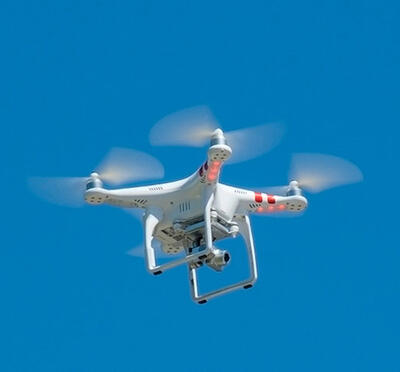This summer, Meredith Adams is observing how various pollinator bee species are affected by beaver analog dams, which are human-engineered structures designed to mimic those built by beavers.
The Honors College student, an undergraduate majoring in ecological engineering, is conducting her research at the Hermiston Agricultural Research and Extension Center, an Oregon State University field station that focuses on discovering and implementing agricultural opportunities and solutions.
By tracking pollinators related to “first foods,” the traditional foods of Native American tribes in the Pacific Northwest, Adams hopes to better understand these ecosystems to promote their health and sustainability.
“Tribal communities deserve access to the culturally significant plants they have relied on for centuries,” Adams said. “Dams control the flow of water, often reducing the speed. This allows vegetation to grow in stream areas and creates habitat for trout and other fish species.”
Adams’ research is advised by Sandra DeBano, associate professor in the College of Agricultural Sciences, and funded through the College of Agricultural Sciences’ Branch Experiment Station Research Internship Program. Additionally, Adams is working toward certification as an apprentice in the Oregon Master Beekeeper Program.
“This research combines my interests in pollinator species, ecology, and engineering,” Adams said. “We also do a lot of fieldwork, and I love spending time outside.”
Research journey and future goals
Adams was introduced to undergraduate research through the URSA Engage program. Under the mentorship of Cheryl Barnes, assistant professor in the College of Agricultural Sciences, Adams assisted graduate students at the Integrated Marine Fisheries Lab with, among other things, dissecting black rockfish to record their length and weight. She presented a poster outlining her contributions at the university’s Student Research Symposium in 2024.
“It was cool to be in that setting, joining lab meetings, and getting introduced to the academic world,” Adams said. “Undergraduate research has opened my eyes. I’m considering different career paths now.”
The ecological engineering undergraduate degree, combining courses from Engineering and Agricultural Sciences, gives Adams, in her words, “the best of both worlds.”
Focusing on work related to designing sustainable systems, Adams is excited about her future career in ecological engineering.
"I like that I get to work with nature, not against it. I'm trying to better the environment," she said."
After graduating, Adams plans to hike the Camino de Santiago, a network of ancient pilgrim routes through Spain and Portugal, with her mother, who is from Portugal.



